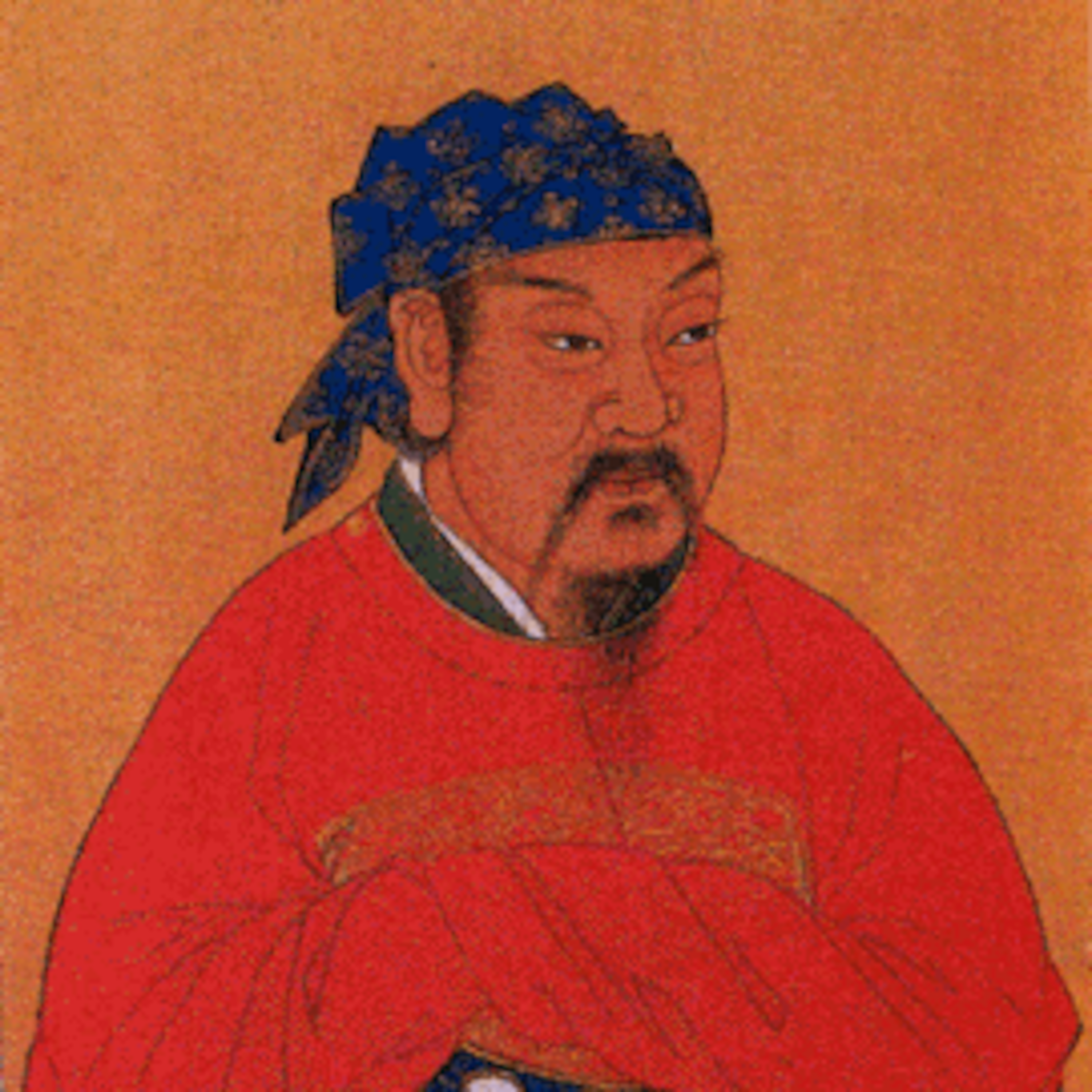Related Research Articles

Yan was an ancient Chinese state during the Zhou dynasty. Its capital was Ji. During the Warring States period, the court was also moved to another capital at Xiadu at times.

Boy & Girl, also known as Love in the City, is a successful youth drama in China. When broadcast in 2003 on China Central Television (CCTV) in 2003, it dominated over all other series with an average of 80 million audience each night. The story introduces you into the lives of the young generation from real-life obstacles to seeking a lover in the modern society. This drama stars Ruby Lin and Lu Yi. This drama ranked 2nd place of highest view rating of China in 2003

Kenneth Tsang Kong is a Hong Kong actor. Tsang's career has spanned 50 years and included a variety of acting roles. Tsang won the Best Supporting Actor Award at the 34th Hong Kong Film Awards in 2015. He left Mediacorp to continue to appear in films from his native Hong Kong.

Heavenly King or Tian Wang is a Chinese title for various religious deities and divine leaders throughout history, as well as an alternate form of the term Son of Heaven, referring to the emperor. The Chinese term for Heavenly King consists of two Chinese characters meaning "heaven/sky" and "king". The term was most notably used in its most recent sense as the title of the kings of the Taiping Heavenly Kingdom, but is also used in religious contexts as well.
Shek Wing-cheung, better known by his stage name Shih Kien, Sek Kin, or Sek Gin, was a Hong Kong–based Chinese actor. Shih is best known for playing antagonists and villains in several early Hong Kong wuxia and martial arts films that dated back to the black-and-white period, and is most familiar to Western audiences for his portrayal of the primary villain, Han, in the 1973 martial arts film Enter the Dragon, which starred Bruce Lee.
Lü Guang, courtesy name Shiming (世明), formally Emperor Yiwu of (Later) Liang ( 涼懿武帝), was the founding emperor of the Chinese/Di state Later Liang. He was initially a Former Qin general, but in light of Former Qin's collapse starting in 384, he decided to found his own state, initially including nearly all of modern Gansu. As his reign continued, however, his domain dwindled after Southern Liang and Northern Liang declared independence. His death in 400 left Later Liang in an unstable state, and it would be no more by 403.

Emperor Wu of (Liu) Song, personal name Liu Yu (劉裕), courtesy name Dexing (德興), nickname Jinu (寄奴), was a statesman and strategist of ancient China, and the founding emperor of the Chinese dynasty Liu Song. He came from a humble background, but became prominent after leading a rebellion in 404 to overthrow Huan Xuan, who had usurped the Jin throne in 403. After that point, using a mixture of political and military skills, Liu Yu gradually concentrated power in his own hands while expanding Jin's territory. In 420, he forced Emperor Gong of Jin to yield the throne to him, thus ending Jin and establishing Song. He ruled only briefly, for two years, before dying and passing the throne to his son, Emperor Shao of Liu Song. The History of the Southern Dynasties described Liu Yu as seven chi and six cun tall.

Romance of the Three Kingdoms is a Chinese television series adapted from the classical 14th century novel of the same title by Luo Guanzhong. The series was produced by China Central Television (CCTV) and was first aired on the network in 1994. It spanned a total of 84 episodes, each approximately 45 minutes long. One of the most expensive television series produced at the time, the project was completed over four years and involved over 400,000 cast and crew members, including divisions of the People's Liberation Army from the Beijing, Nanjing and Chengdu military regions. Some of the dialogues spoken by characters were adapted directly from the novel. Extensive battle scenes, such as the battles of Guandu, Red Cliffs and Xiaoting, were also live-acted.
The ranks of imperial consorts have varied over the course of Chinese history but remained important throughout owing to its importance in management of the inner court and in imperial succession, which ranked heirs according to the prominence of their mothers in addition to their strict birth order. Regardless of the age, however, it is common in English translation to simplify these hierarchy into the three ranks of Empress, consorts, and concubines. It is also common to use the term "harem", an Arabic loan word used in recent times to refer to imperial women's forbidden quarters in many countries. In later Chinese dynasties, these quarters were known as the rear palace. In Chinese, the system is called The Rear Palace System.

Three Kingdoms is a 2010 Chinese television series based on the events in the late Eastern Han dynasty and the Three Kingdoms period. The plot is adapted from the 14th century historical novel Romance of the Three Kingdoms and other stories about the Three Kingdoms period. Directed by Gao Xixi, the series had a budget of over 160 million RMB and took five years of pre-production work. Shooting of the series commenced in October 2008, and it was released in China in May 2010.

The Tale of Loyal Heroes and Righteous Gallants (忠烈俠義傳), also known by its 1883 reprint title The Three Heroes and Five Gallants (三俠五義), is an 1879 Chinese novel based on storyteller Shi Yukun's oral performances. The novel was later revised by philologist Yu Yue and republished in 1889 under the title The Seven Heroes and Five Gallants (七俠五義), with the story essentially unaltered.

The Taiping Heavenly Kingdom is a Chinese television series based on the events of the Taiping Rebellion and the rise and fall of the Taiping Heavenly Kingdom in the late Qing dynasty. The 48-episode series was first broadcast on CCTV in China in 2000. The series was also broadcast on STAR Chinese Channel in Taiwan and on ATV in Hong Kong.

All Men Are Brothers is a 2011 Chinese television series adapted from Shi Nai'an's 14th century novel Water Margin, one of the Four Great Classical Novels of Chinese literature. The series is directed by Kuk Kwok-leung and features cast members from mainland China, Taiwan and Hong Kong. The series was first broadcast on 8TV in March 2011 in Malaysia.
Prince or King of Yan was a Chinese feudal title referring to the ancient Chinese State of Yan and to its fiefs including the capital Yanjing.

Mr. Right Wanted is a 2014 Taiwanese comedy, romance television series produced by UDN Productions, starring Sonia Sui, Christopher Lee, Kuo Shu-yao, Jerry Huang, Hans Chung, Chang Shao Huai, and Emerson Tsai. Filming began on December 23, 2013 and finished on June 7, 2014. First original broadcast began November 7, 2014 on TTV channel airing on Friday nights from 10:00-12:00 pm.
Miao Tien was a Chinese film actor mostly active in Hong Kong and Taiwan.
The Bing Xin Children's Literary Award is named after the Chinese writer Bing Xin, whose work has made her a key figure in 20th-century Chinese literature. It is an annual award intended to "honor the creativity of Chinese Children's literature and in addition to discovering and fostering new authors, supporting and encouraging outstanding children's literature and publishing..." The first series of awards were announced in 2005.

The Advisors Alliance is a 2017 Chinese two-part television series based on the life of Sima Yi, a government official and military general who lived in the late Eastern Han dynasty and Three Kingdoms period of China. The series starred Wu Xiubo as the main character, with Liu Tao, Li Chen, Janine Chang, Tang Yixin, Yu Hewei and Wang Luoyong playing supporting roles. The first part of the series started airing on Jiangsu TV and Anhui TV on 22 June 2017. The second part started airing on Youku on 8 December 2017.
References
- Lü, Zongli (吕宗力) (2015). 中国历代官制大辞典(修订版) (in Chinese). Beijing: Commercial Press. ISBN 978-7-100-10307-7.
| This Chinese royalty–related article is a stub. You can help Wikipedia by expanding it. |